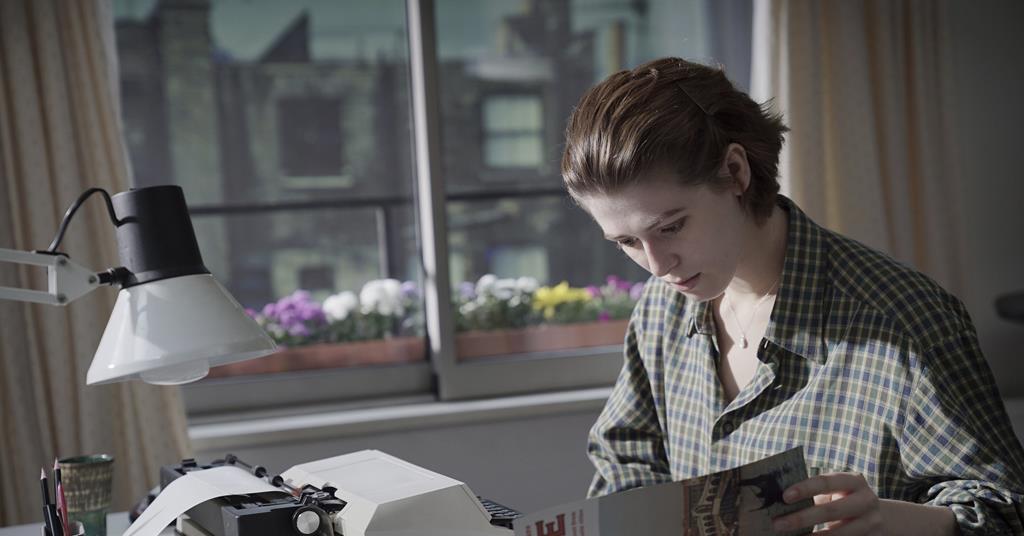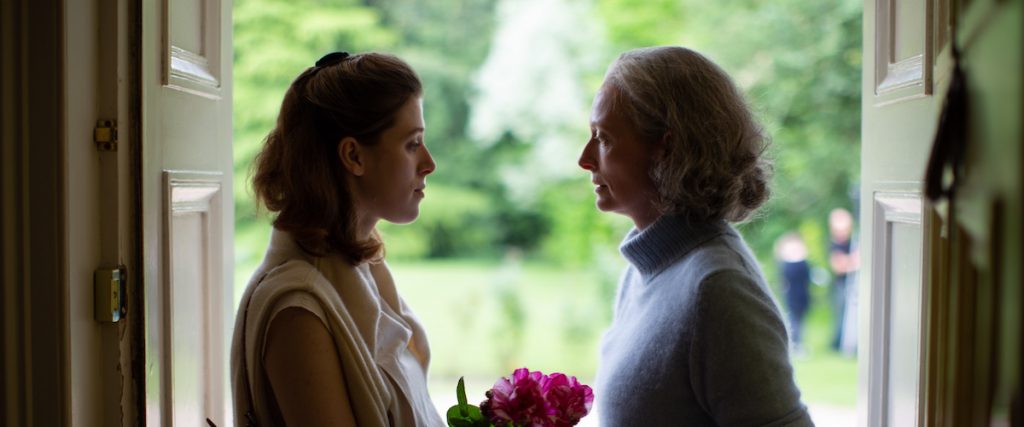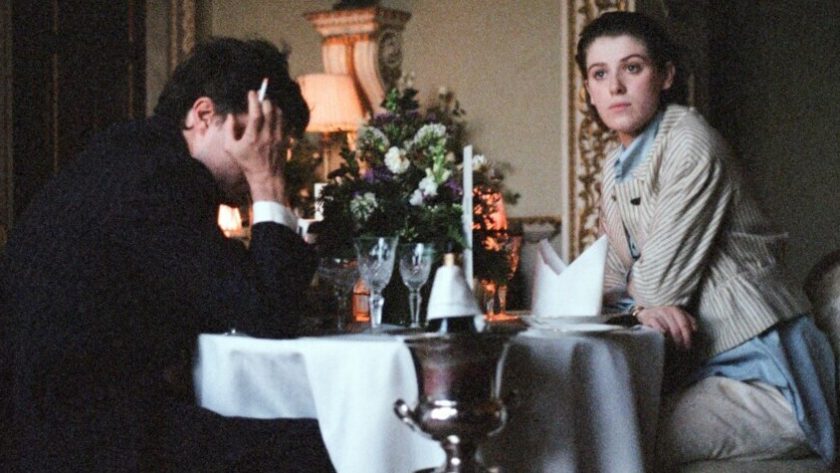BFI’s London Film Festival is in town! The FilmSoc Blog is back for the 65th edition of the city’s largest film festival, delivering a look at the hits and misses of the 2021-22 season.
Bryn Chiappe reviews Joanna Hogg’s sequel to the drama/romance of a film student who falls in love with a charismatic man, now finally receiving a world premiere at the BFI London Film Festival.
The second installment of Joanna Hogg’s künstlerroman piece was a film I went into with interest, if not excitement. Her films are rightly celebrated for their masterful approach to realism, consistently featuring dialogue that feels indistinguishable from a verbatim script and performances that match this level of truth to life. I’m not alone, however, in finding that her choice of subject matter can sometimes create an unreconcilable barrier which prevents my ability to appreciate the way in which the story is being told from translating into feeling the emotional resonance of said story. The dysfunctional domestic lives of the English upper-class rarely provide the necessary material for narrative points to evoke any universal truths of human experience, and Hogg’s commitment to chronicling this world is one which has left me frustrated and confused about how one should evaluate the worth of her oeuvre. The Souvenir Part II is a satisfying rebuttal to such criticism, performing its functions as artistic manifesto and character study simultaneously. The concepts are intrinsically linked: one cannot exist without the other and the film cannot exist without either.

With this being said, I left the cinema feeling like I understood why Joanna Hogg is the director she is, and why she directs films at all, but not feeling like I cared about them any more than I did when I entered the cinema. The film has certainly left its residue in my mind, but more for questions of an abstract, intellectual nature than for an earnest emotional response. It still felt, and in more explicit fashion than her previous work, like Hogg considers herself to be at war with the social realist and kitchen sink dramas of the British film industry that she grew up with. In The Souvenir Part I, Julie abandons her original project at film school about a working-class single mother and her child in the Sunderland docks because she realises that she isn’t able to treat the content with the respect and understanding that first-hand experience provides. Hogg values the truthfulness of the way in which a story is told above all else. This is fine; but it articulates itself a lot of the time as if her project is aggressive in a desire to rehumanise rich white people following on from their depictions in the films of directors like Ken Loach and Mike Leigh. It’s truly delusional to consider this a noble occupation, however truthful it may feel.

Several notable directors have taken on the project of autobiographical filmmaking about their own filmmaking, some with more success than others in relaying to the audience why they should care. Quite how dramatic Hogg’s formative years at film school were somewhat neutralised this question in The Souvenir Part I, where the pervasive tension and intrigue of the storyline meant that the film could sustain itself from narrative development alone. There, metacinematic musings felt like an addition to the story, rather than the story itself. I found Part II less satisfying in this sense. It is a story, certainly, but one that at times struggles with how overtly it positions itself as the intervening period between an ending and new beginning. It’s about Hogg’s process of becoming, and of finding ways to articulate her becoming through filmmaking. The self-reflexivity of it all is signposted by endless attention paid to mirrors across the film. When the mirrors which line one wall of Julie’s apartment are removed towards the end, it’s supposed to come across as a moment of closure with the alignment of her feelings and self-perception. The closure feels a little flimsy in light of it coming at the end of around four hours of film that Hogg has made decades after the real events. It’s hard to tell whether she wants to continue with autobiographical work in light of this, as by the end of The Souvenir Part II one begins to wonder whether her fundamental message with the film is that one must be in a constant process of self-examination and representation in order to reconcile trauma.
The film shows Hogg’s process of trying to make a film about her life-changing romantic relationship immediately after it ended and failing to do so as a result of her being too close to the matter at hand emotionally. The process of making the film school project is depicted as being invaluable in Hogg’s process of recovery and artistic development however, which by proxy explains the motivation to revisit this period of her life now. At the same time, all of these processes of reconstructing the past and thereby reconciling it with the present feel like personal ones, but not to the extent of them becoming so essentialised that they are transfigured into something accessible. If I were Joanna Hogg, I’d know that making this film was healthy, and would likely want to repeat the process in twenty years – making a film about me making a film about me making a film. However, I’m not Joanna Hogg. It’s well-made enough for me to genuinely feel happy for her as a person, but I find it telling that this happiness is reserved for the director behind the camera and not for the character that Honour Swinton Byrne plays on the screen.
The Souvenir Part II out 4 February 2022:




